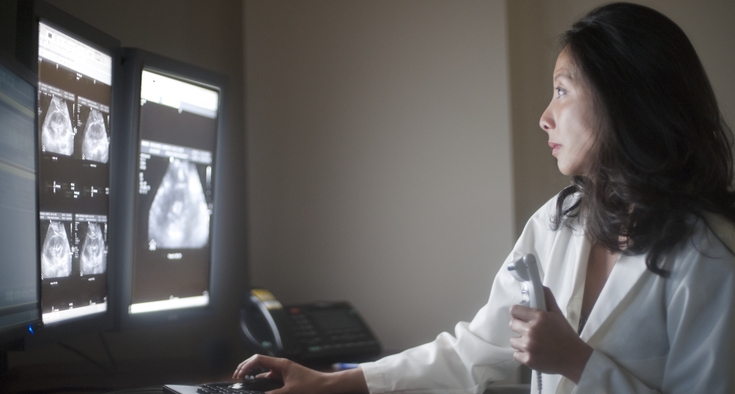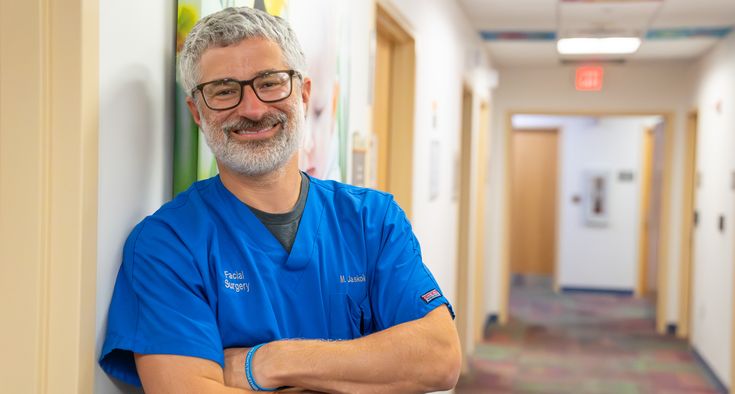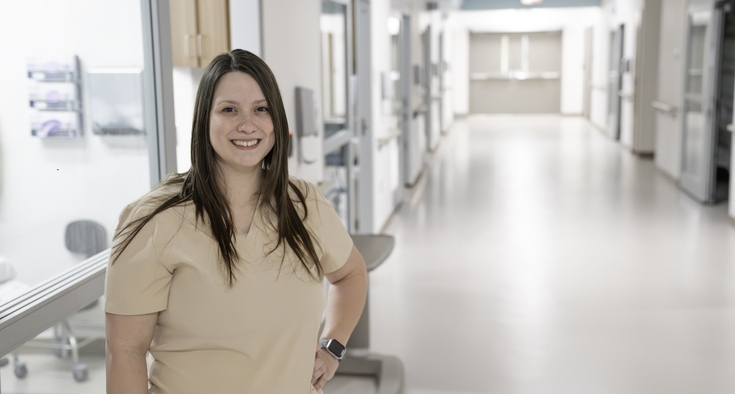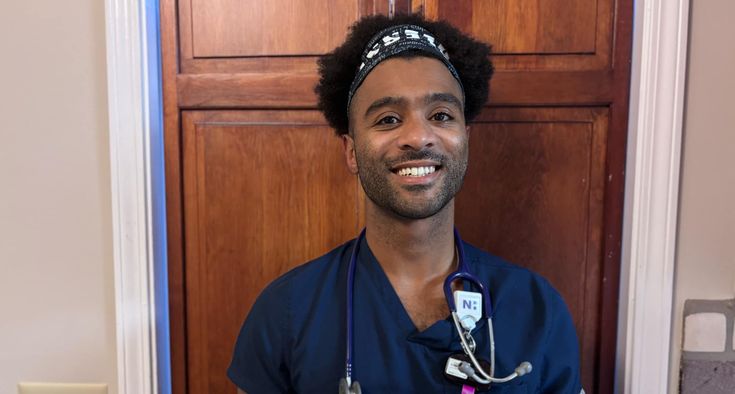Untold numbers of people – first, in coastal North Carolina, and eventually, across the United States – will benefit from two $500,000 research grants awarded by a collaborative including Novant Health, UNC Health and the UNC School of Medicine.
The funding will launch two studies: one that evaluates an AI tool expanding access to prenatal ultrasounds and another aimed at standardizing how doctors prescribe opioids after surgery.

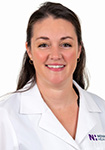
“At New Hanover Regional Medical Center, we deliver more than 4,500 babies a year, and our physicians and residents care for patients from all walks of life,” Buckingham said. “Some travel great distances due to lack of access near their homes. We get a big swath of people here – rural, suburban, urban – so it’s a good mix that includes some people who don't have doctors within 100 miles of them and others who have easy access to care.
An academic center like UNC Chapel Hill often treats people with rare conditions, whereas we’re usually seeing more common, but still dangerous, conditions like preeclampsia. Right now, the only site in the U.S. piloting AI ultrasound is Chapel Hill. We’re expanding our sample size to include a different population.”
Harnessing AI to improve prenatal care
Ultrasounds have been standard in obstetrics in the U.S. for half a century, but access to these scans can vary significantly depending on geography. UNC researchers have developed low-cost, accessible ultrasound technology that could transform prenatal care in under-resourced areas. These “point-of-care” ultrasound devices plug into iPhones and iPads.
This technology, still in the development phase, pairs portable ultrasound devices with AI to interpret images in real time. For this study, titled “Democratizing obstetric ultrasound on the North Carolina Coast: An innovation research platform,” researchers will enroll an expected sample size of 600 pregnant women over two years.
Buckingham and Dr. Ashwin Patel from Novant Health; and Dr. Ben Chi and Dr. Katelyn Rittenhouse from UNC are leading the study. Its dual aims are of equal importance:
- To see how AI learns and teach it to look for specific information
- Making this technology available to pregnant women who don't have easy access to medical care
Buckingham said the study will address three big hurdles to ultrasound access: the need for large, expensive ultrasound equipment; for skilled technicians; and for radiologists or obstetricians to interpret those scans.
Researchers wondered: Can we harness AI to do work that usually requires physician input and bring high quality ultrasound to under-resourced populations?
“AI independently learns when you give it information,” Buckingham explained. “We’re going to observe how AI looks at a uterus, and the fetus inside it, and what it’s paying attention to. Physicians are trained to look at specific things on an ultrasound – like how big the baby is. AI doesn’t seem to look at the same things a human does, yet it still produces accurate readouts.
“We’re going to see if AI can do a better job of diagnosing the conditions physicians are trained to look for,” Buckingham said. “The plan is for a research sonographer to do all the ultrasounds for the study. The data we gather will then teach the algorithm how to do an even better job of recognizing things like fetal weight, amniotic fluid and twin pregnancies.”
The sonographer will be based at the Novant Health Maternal Fetal Medicine (MFM) office, which will serve as the hub for recruiting participants.
Ultimately, Buckingham hopes AI can recognize life-threatening conditions, such as an ectopic pregnancy. If it can, it would “take some of the onus off patients who have to drive an hour or two to an appointment,” Buckingham said. “It could be the difference between a woman driving two hours or getting a Life Flight to a hospital.”
Some New Hanover patients travel two hours each way for doctors’ appointments. That’s a big burden considering that, near the end of pregnancy, patients are supposed to see their OB-GYNs every week or every other week.
Opioids in post-surgical patients
The second project, “Building an Implementation Science Network to Reduce Post-Operative Opioid Prescribing in Coastal N.C.,” is led by Novant Health’s Hope and Dr. Jared Gallaher, Dr. Clara Lee and Jessica Schumacher, Ph.D. from UNC. Hope expects it to take a year or more to complete.
Opioids are often the go-to drug for post-surgical pain. But a certain percentage of patients are likely to become persistent users. The study aims to create and share a data-driven opioid-prescribing schedule based on surgical procedure.
Wilmington and southeastern North Carolina have higher-than-average rates of opioid abuse, Hope said. “They’re the main medication surgeons prescribe,” he continued. “It used to be that there wasn’t a set standard on how much opioids to give after surgery. The natural tendency was to prescribe more opioids than patients needed so they had an adequate supply. We don’t want a patient to be in pain with no way to manage it.”
But after learning more about how few pills it takes for some people to become addicted, Hope realized more wasn’t necessarily better. “Doctors need to be aggressive about following the guidelines,” he said.
The guidelines he’s referring to are the result of a study that examined a target amount of opioids needed after common surgeries. “The study found that surgeons were prescribing too many opioids and that patients didn’t need as much as they were prescribed,” he said.
The target is a guideline only – not a rule. That’s important because, as Hope said, “Pain is individualized. Two patients can have the same surgery and still have very different pain experiences.”
Study leaders will “provide benchmark reports to surgeons so they can see how they stack up against their peers and against national standards,” said UNC’s Gallaher, with a goal of standardizing how opioids are prescribed.
Since not every doctor may be aware of that study and its findings, Hope suspects there’s still a lot of variability in the way opioids are prescribed. This study will help determine: Are doctors following the recommendations?
“If they’re not, they won’t be penalized,” Hope said. “But we do want to educate them on best practices. In doing that, we're also educating them about other options. While it’s not the primary focus of this study, it will be an offshoot of it.”
Being aware of alternatives is important since, as Hope said, “Many patients these days are aware of the risks and motivated to avoid opioids, so doctors need to know about other modalities.”
Some patients hold on to opioids after they’ve recovered from surgery “just in case.” But that’s a risky practice. “Many people who become addicted start off by getting it from a friend’s leftover stash,” Hope said.
Hope’s advice if you’re preparing for surgery: “Talk with your surgeon. Be aware that, as surgeons, we can't take away all your pain after surgery – even with narcotics. Ask your surgeon what level of pain you might expect, if you’ll need narcotics and what your options are besides opioids.”





